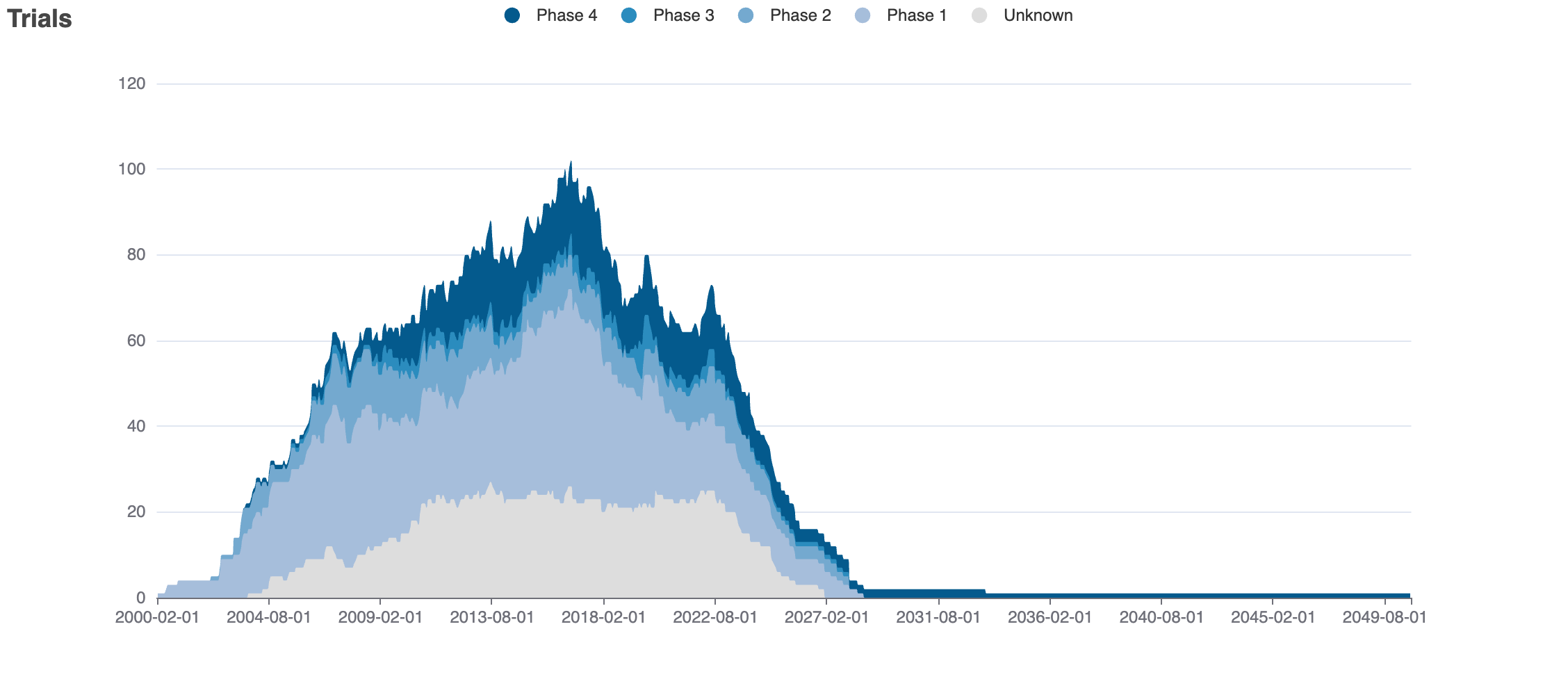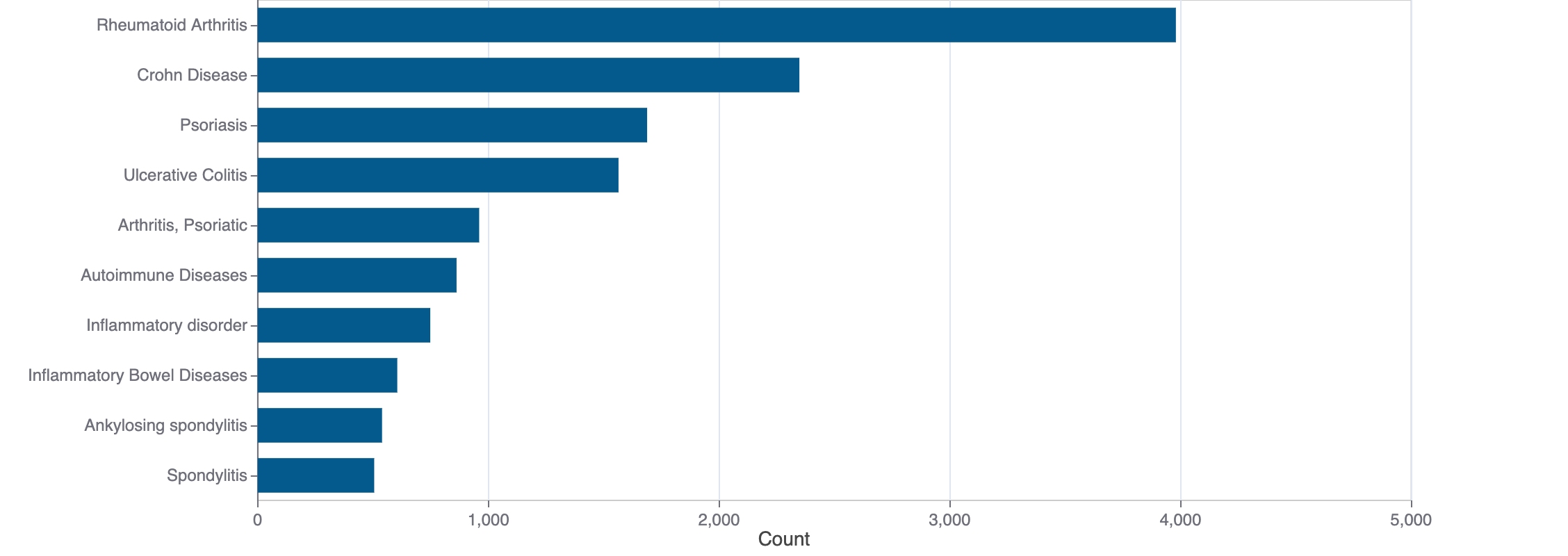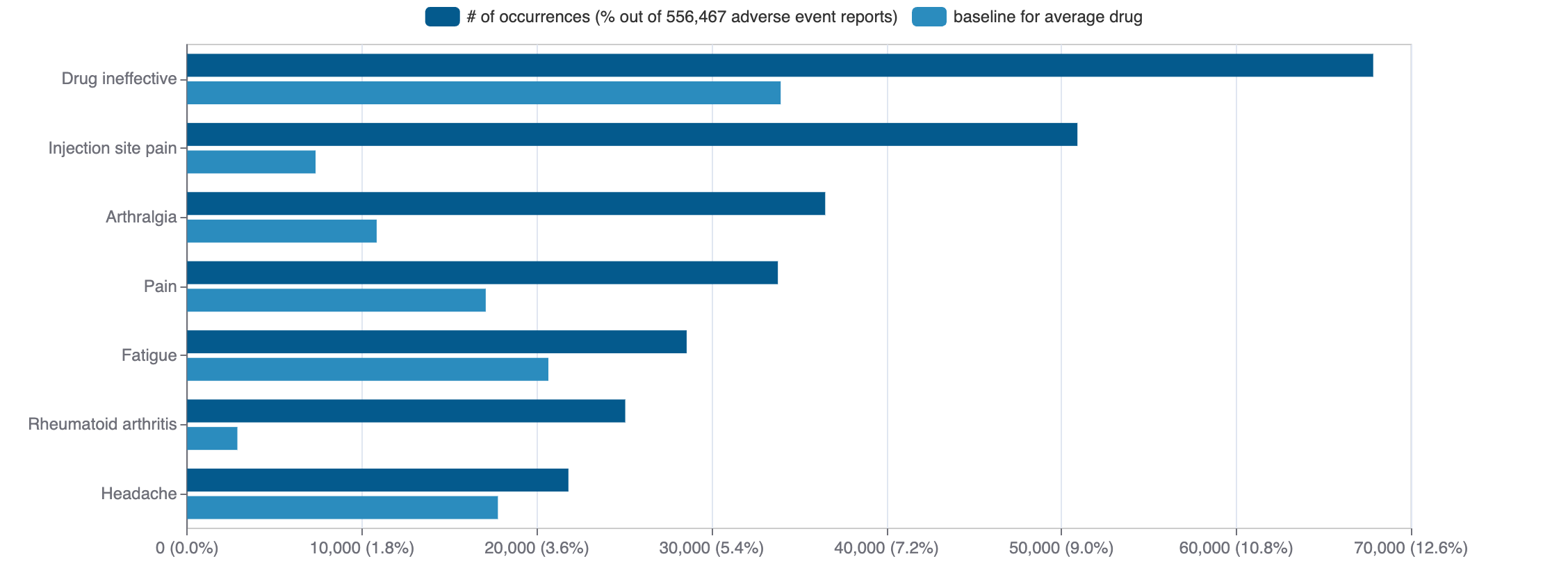Levomilnacipran
Fetzima (levomilnacipran) is a small molecule pharmaceutical. Levomilnacipran was first approved as Fetzima on 2013-07-25. It is used to treat major depressive disorder in the USA. The pharmaceutical is active against sodium-dependent serotonin transporter and sodium-dependent noradrenaline transporter. In addition, it is known to target sodium-dependent dopamine transporter.
Download report
Favorite
Commercial
Therapeutic Areas
Therapeutic Area | MeSH |
|---|---|
| mental disorders | D001523 |
Trade Name
FDA
EMA
Fetzima (generic drugs available since 2023-01-06)
Drug Products
FDA
EMA
New Drug Application (NDA)
New Drug Application (NDA)
Abbreviated New Drug Application (ANDA)
Abbreviated New Drug Application (ANDA)
Levomilnacipran hydrochloride
Tradename | Company | Number | Date | Products |
|---|---|---|---|---|
| FETZIMA | AbbVie | N-204168 RX | 2013-07-25 | 4 products, RLD, RS |
Labels
FDA
EMA
Brand Name | Status | Last Update |
|---|---|---|
| fetzima | New Drug Application | 2019-10-17 |
Indications
FDA
EMA
Indication | Ontology | MeSH | ICD-10 |
|---|---|---|---|
| major depressive disorder | EFO_0003761 | D003865 | F22 |
Agency Specific
FDA
EMA
No data
HCPCS
No data
Clinical
Clinical Trials
4 clinical trials
View more details

Mock data
Subscribe for the real data
Subscribe for the real data
Indications Phases 4
No data
Indications Phases 3
Indication | MeSH | Ontology | ICD-10 | Ph 1 | Ph 2 | Ph 3 | Ph 4 | Other | Total |
|---|---|---|---|---|---|---|---|---|---|
| Allergic rhinitis perennial | D012221 | EFO_1001417 | J30.89 | — | — | 1 | — | — | 1 |
Indications Phases 2
Indication | MeSH | Ontology | ICD-10 | Ph 1 | Ph 2 | Ph 3 | Ph 4 | Other | Total |
|---|---|---|---|---|---|---|---|---|---|
| Rhinitis | D012220 | EFO_0008521 | J31 | — | 2 | — | — | — | 2 |
Indications Phases 1
No data
Indications Without Phase
Indication | MeSH | Ontology | ICD-10 | Ph 1 | Ph 2 | Ph 3 | Ph 4 | Other | Total |
|---|---|---|---|---|---|---|---|---|---|
| Healthy volunteers/patients | — | — | — | — | — | 1 | 1 |
Epidemiology
Epidemiological information for investigational and approved indications
View more details
Drug
General
| Drug common name | LEVOMILNACIPRAN |
| INN | levomilnacipran |
| Description | Levomilnacipran (brand name Fetzima) is an antidepressant which was approved in the United States in 2013 for the treatment of major depressive disorder (MDD) in adults. It is the levorotatory enantiomer of milnacipran, and has similar effects and pharmacology, acting as a serotonin–norepinephrine reuptake inhibitor (SNRI).
|
| Classification | Small molecule |
| Drug class | — |
| Image (chem structure or protein) | |
| Structure (InChI/SMILES or Protein Sequence) | CCN(CC)C(=O)[C@@]1(c2ccccc2)C[C@H]1CN |
Identifiers
| PDB | — |
| CAS-ID | 96847-54-0 |
| RxCUI | 1433212 |
| ChEMBL ID | CHEMBL99946 |
| ChEBI ID | — |
| PubChem CID | 6917779 |
| DrugBank | DB08918 |
| UNII ID | UGM0326TXX (ChemIDplus, GSRS) |
Target
Agency Approved
SLC6A4
SLC6A4
SLC6A2
SLC6A2
Organism
Homo sapiens
Gene name
SLC6A4
Gene synonyms
HTT, SERT
NCBI Gene ID
Protein name
sodium-dependent serotonin transporter
Protein synonyms
5-hydroxytryptamine (serotonin) transporter, 5HT transporter, 5HTT, Na+/Cl- dependent serotonin transporter, serotonin transporter 1, solute carrier family 6 (neurotransmitter transporter), member 4, solute carrier family 6 (neurotransmitter transporter, serotonin), member 4, Solute carrier family 6 member 4
Uniprot ID
Mouse ortholog
Slc6a4 (15567)
sodium-dependent serotonin transporter (Q60857)
Alternate
SLC6A3
SLC6A3
Organism
Homo sapiens
Gene name
SLC6A3
Gene synonyms
DAT1
NCBI Gene ID
Protein name
sodium-dependent dopamine transporter
Protein synonyms
DA transporter, dopamine transporter 1, solute carrier family 6 (neurotransmitter transporter), member 3, solute carrier family 6 (neurotransmitter transporter, dopamine), member 3, Solute carrier family 6 member 3
Uniprot ID
Mouse ortholog
Slc6a3 (13162)
sodium-dependent dopamine transporter (Q9R1I2)
Variants
Clinical Variant
No data
Financial
No data
Trends
PubMed Central
Top Terms for Disease or Syndrome:

Mock data
Subscribe for the real data
Subscribe for the real data
Additional graphs summarizing 381 documents
View more details
Safety
Black-box Warning
Black-box warning for: Fetzima
Adverse Events
Top Adverse Reactions

Mock data
Subscribe for the real data
Subscribe for the real data
27 adverse events reported
View more details
Premium feature
Learn more about premium features at pharmakb.com
Learn more
